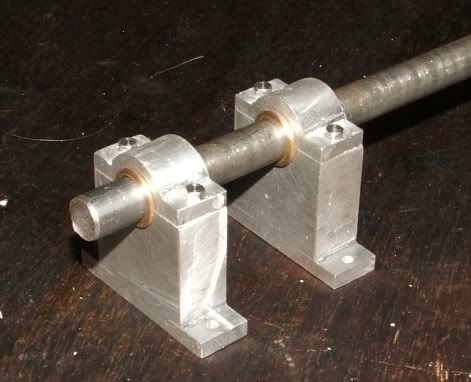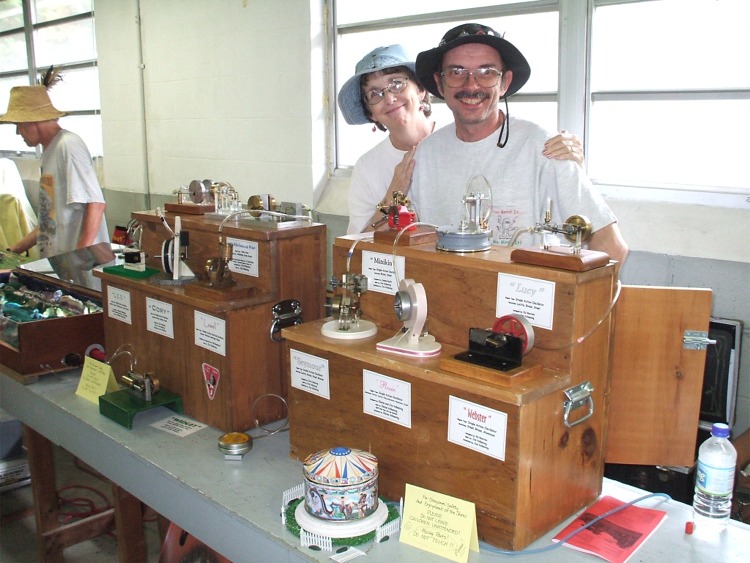John: For small demo display engines just about any material will work, if run on air.
PM Research sells several casing kits that are all aluminum, well mostly the castings are aluminum with some brass and steel rod to finish out the kit. I have engines built with Plexiglas/ Lucite Corian as well as aluminum.
People at shows frequently ask me about wear. Lucy my first see through engine has had quite a few hours running since summer of 2003 usually 2 shows a year probably about 14 hours on a two day show. No major cylinder wear steel piston in plastic cylinder. I do oil it.
As far as flywheel material I have used brass , Corian , Aluminum and cast iron.
I would say brass would be my first choice free machining brass is easy to machine looks good and has a density higher than steel.
Free machining steel would also work well especially if you plan on paint. several of my engine with a 1/4 ' bore have aluminum fly wheels and run on less than 10 psi of air pressure the aluminum flywheel is not a problem.
When I first started model building I worried much about the right material for the job. But experience has taught that the right material is often whatever is in your stock drawer/bin/rack. And remember with home built model engines if a part wears out or breaks because you picked the wrong stuff you have a machine shop make a new one only better. I have learned that plastic crank disks do not work for long so remade out of brass. here is my display
Also learn to scrounge and salvage. Most of my engines are built with stuff that others considered scrap.
Tin






